At Home in the Vertical Shtetl
As a child, I yearned to leave southern Brooklyn’s enclave of Soviet Jewish immigrants. But watching old home movies decades later, I saw the place in a new light.
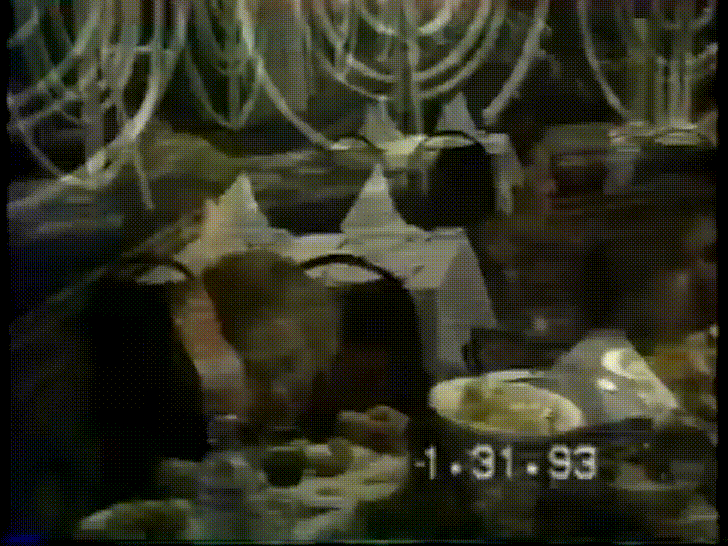
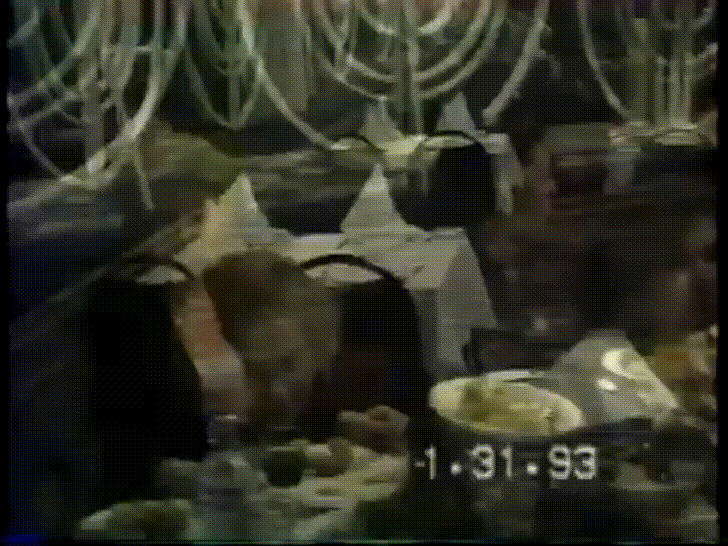


When my best friend told me that she was moving to Israel for good, I couldn’t exactly blame her. The thought had crossed my mind more than once.
“I just don’t understand the men here,” she told me on one of our late-night subway rides back to southern Brooklyn. “Or maybe the problem isn’t them, maybe it’s me.”
A childhood friend—another first-generation American, Ukrainian Jew, and Brooklyn native—harbored similar doubts about settling down where our immigrant parents had raised us. After he landed a remote job in tech, he moved back to the Old Country driven by the promise of cheap rent in Kyiv, a metropolitan city whose women, he said, “are all 10s.”
One of my cousins moved down South. Another, to Singapore. The unifying factor among us first-generation millennials was that, our parents’ Soviet Jewish values be damned, we were determined to run away from them and from New York City, the soul-sucking hellscape where they’d landed some decades prior.
For the longest time my life had been characterized by a desire to escape from New York and my overbearing family. I dreamed of a life on the West Coast. And yet despite everything, I stayed in Brooklyn.
My like-minded friends and I hailed from the last bastion of ungentrified ZIP codes in southern Brooklyn, where today it remains less common to hear native English spoken on the streets than any number of foreign, mainly Slavic, languages. Our extended families lived in what we referred to as the vertical shtetls: a conglomerate of murky-gray housing units between Coney Island and Brighton Beach, teetering on the liminal space where the amusement park ends and immigrant enclave begins. The hallways of those apartments are permanently penetrated by the smell of fried onions, yet their decadeslong waiting lists remain the stuff of urban legend, replete with tales of bribery and other corrupt habits imported from the motherland.
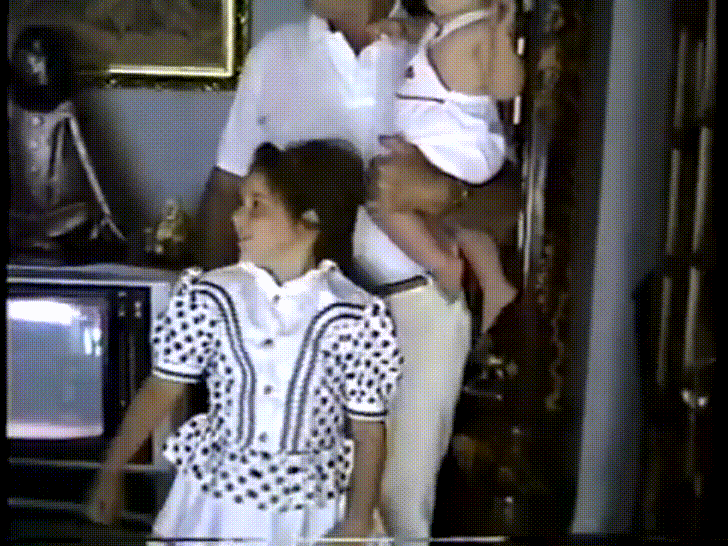
When my grandparents fled the USSR with their families 40 years ago, the Jewish resettlement agency presented them with a choice: Either make aliyah or move to America. To the chagrin of the Israeli government, my grandparents on both sides chose the latter, keen to relocate their children to the economic powerhouse where my mother and father later met, and where I was born.
In those days New York City was crime-ridden and recently bankrupt, but for an enterprising young immigrant like my father it was also brimming with opportunity. Within a few short decades my relatives built several successful brick-and-mortar businesses with my father at the helm and nary a college degree among them. By the time I was born, Dad was a bona fide businessman whose success story was only spoiled by its cliches, like that of his humble beginnings busing tables and driving a taxi cab.
In the mid-1990s I was just a little kid, but distinctly remember my birthday celebrations and other large family gatherings packing the nightclubs along Brighton Beach Avenue. Immigration had finally paid off in spades, and anything back then was an excuse for the grownups to drink and party until dawn. Everything felt like the movies: my dad in his Larry David suspenders and mom with her jet-black Aquanet hair; my Yiddish-speaking grandparents and droves of gaudily fashioned relatives; the accents, the personalities, the vodka. I even learned later that my dad and his parents had appeared as extras in the 1984 comedy Moscow on the Hudson starring Robin Williams, which, when I found out, seemed too on the nose, even for us.
In movies, I saw simulacra of my family refracted through the television screen. At that time I was wearing out our home VHS tapes with repeated viewings of The Addams Family, which I internalized as an allegory for our own peculiar clan and many foiled attempts at fitting in with white-bread Americans. As I grew older, scenes from New York City classics like Moonstruck, Crossing Delancey, Saturday Night Fever and—needless to say—Moscow on the Hudson infiltrated my memories and melded with them.
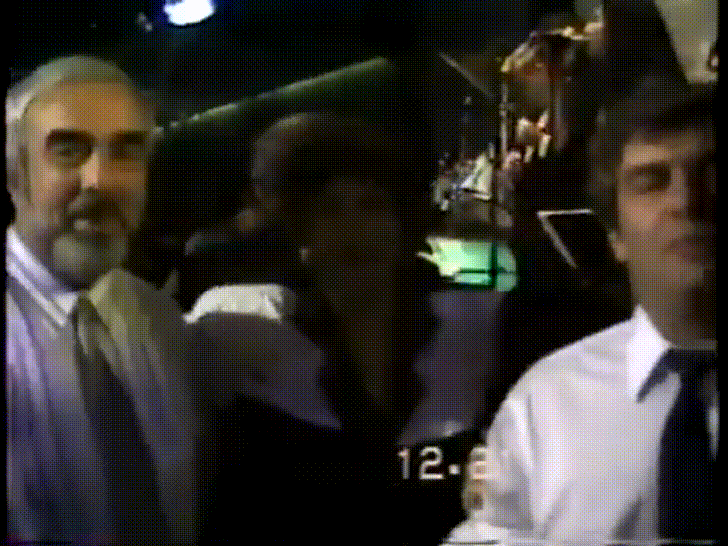
But the New York of those movies was a far cry from the city in which I resided and had come of age. In college I felt like I lived a double life, yo-yoing between Little Odessa and Manhattan, where most people I encountered were city transplants who had never set foot in the outskirts of the outer boroughs. At the same time, like Stephanie Mangano in Saturday Night Fever, I resented southern Brooklyn and dreamed of a world beyond it. Seeking a radical change, I dropped everything and moved to California for two years. On a visit home one Thanksgiving during that period, the term “reverse culture shock” never resonated with me more: Brooklyn was gray and I was Technicolor. In the words of my grandmother, I had developed a touch of the meshugas.
Eventually, in the fallout of a relationship I returned home to “figure things out”—but what I intended as a brief intermission to my soul-searching ended up anchoring me to the very place I had tried so eagerly to escape. When I met Vladik, a recent Brooklyn transplant who had immigrated from Moldova to Virginia as a teen, he seemed like a parallel-universe version of myself—only perhaps more earnest and less cynical. We bonded over our mutual love of klezmer, vintage, and feelings of perpetual otherness. He made fun of my bastardized Russian and I teased him for his foreign accent. But perhaps more than anything else, we bonded over Brighton Beach.
“How can you hate this place? There’s so much folklore here,” he said as we walked down Brighton Beach Avenue, avoiding spillover from fruit stands rotting on the hot asphalt.
I looked at him quizzically. “If you spent as much time here as I have,” I said, “you would understand.”
When Vladik met my parents, he hung on every word of my father’s rags-to-riches story. I realized then what my family represented: We were those storied Soviet Jews who made it out just in time to seize the American dream before the doors slammed shut in the early 1980s. He had heard about the likes of us back in Moldova and was starry-eyed meeting a formerly stateless immigrant in the flesh. Seeing myself and my family through his eyes, everything about our wackadoo immigrant saga suddenly seemed not only impressive, but kind of cool.
What I could not understand was the source of Vladik’s seemingly encyclopedic knowledge of Brighton Beach popular culture. Before we met, I’d never even heard of Brighton singing legends Mikhail Shufutinsky and Willi Tokarev—but once I learned who they were, I was shocked to discover that my grandparents had brushed shoulders with them in the good old days. Vladik, with his perfect Russian and boundless curiosity, was able to get my relatives to reveal things about their lives that I would have never even known to ask about.
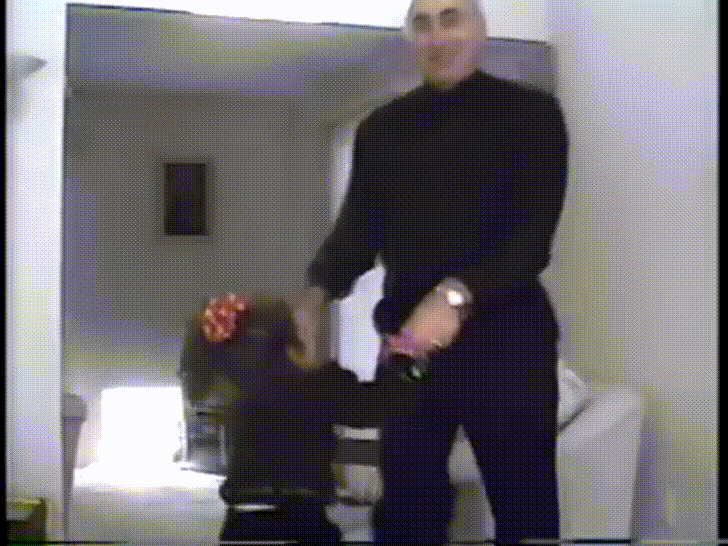
Seeing an opportunity, I presented Vladik with our digitized home movies that had been stashed away at my grandparents’ apartment in the vertical shtetls. When we sat down for a viewing, something magical happened. We watched, mesmerized, as my family members danced in front of a live band at a Russian nightclub on Brighton Beach. Vladik, of course, could name every tune with astonishing accuracy, and I could not believe the extent to which this ritual felt like cinema: The music was a soundtrack and my relatives, 30 years younger and dressed to the nines, were like superbly cast actors in a dramedy of their own lives.
Watching the tapes, I was able to situate myself in a story beyond my own. For the first time, I felt something other than shame about southern Brooklyn; that it was not just a footnote in my personal story. It was as significant to my family’s heritage as my ancestral homeland—in some ways, even more so.
We watched the tapes again and again. The songs replayed in my head as Vladik and I walked the familiar stretch of Ocean Parkway down to the boardwalk. I must have overheard four different languages within the span of that one walk, each interlocutor with his or her own origin story, and each with family in far-flung corners of the world.
Everyone says that New York is not America. Well, southern Brooklyn is not New York. There is truly no other place like it in the world—and as I realize now, no other place I can call home.
Samantha Shokin is a writer and musician based in Brooklyn.